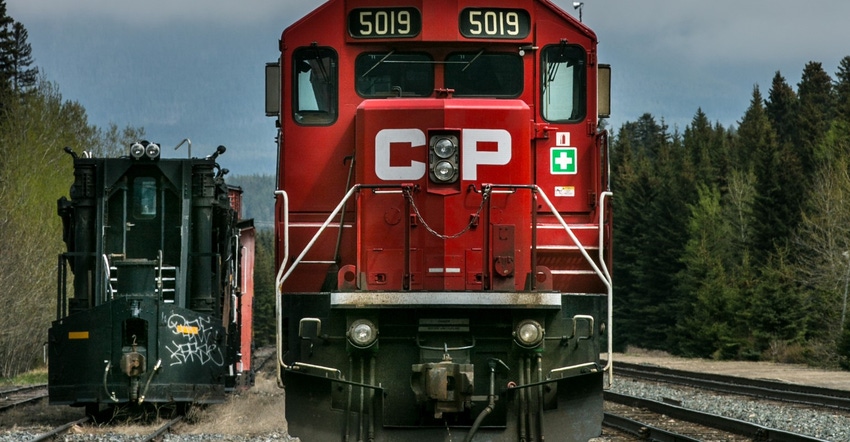Work stoppage at major Canadian rail line to start again Tuesday at noon.

The Teamsters Canada Rail Conference and Canadian Pacific have agreed to final and binding arbitration. In such a process, both parties agree to accept the arbitrator's decision as final. The rail workers will return to work at 12:00 (noon) local time on Tuesday, March 22.
“The decision to agree to final and binding arbitration is not taken lightly,” says Dave Fulton, TCRC spokesperson at the bargaining table. “While arbitration is not the preferred method, we were able to negotiate terms and conditions that were in the best interest of our members.”
Wages and pensions remain stumbling blocks, the union says. CP wishes to thank the Canadian Federal Conciliation and Mediation Services for its critical work during this negotiation.
“CP is pleased to have reached agreement with the TCRC Negotiating Committee to enter into binding arbitration and end this work stoppage,” says CP President and CEO Keith Creel. “This agreement enables us to return to work effective noon Tuesday local time to resume our essential services for our customers and the North American supply chain.”
CP says it will immediately begin working with customers to resume normal train operations across Canada as soon as possible.
TCRC represents approximately 3,000 locomotive engineers, conductors, train and yard workers across Canada.
Canadian Pacific originated 242,533 carloads of grain last year and is a major conduit for fertilizer deliveries into the U.S. Approximately 10-15% of CP business is fertilizer, which had worried farmers on the ongoing impacts of fertilizer supply chain issues.
"Every additional day of the shutdown would have imposed a compounding negative impact on agriculture and the broader economy," says Mike Steenhoek, Soybean Transportation Coalition executive director. "The food production provided by farmers is clearly an essential service. The delivery of this food production by Canadian Pacific and other transportation providers is also an essential service. We commend both parties for agreeing to a process that facilitate a resolution to the negotiations without further disrupting a supply chain that is already under tremendous stress."
Steenhoek adds a quick resolution to the negotiations is particularly significant for agriculture given how there are certain times of the year in which the ultimate success of the farmer is primarily determined. "Spring is clearly one of those consequential times. Having normal operations quickly resume for grain, fertilizer and other essential commodities was critical for the agricultural supply chain."
The Canadian Cattlemen’s Association and the Canada’s National Feeders’ Association had called for parties to move directly to binding arbitration to avoid a strike and the resulting necessity of implementing back-to-work legislation.
James Bekkering, NCFA chair says, “A rail strike would be devastating to our industry. With last year’s drought and recent transportation issues, feeders have been reliant on CP rail bringing up feed from the U.S. If trains stop moving, there will be no other options.”
According to Statistics Canada, Alberta and Saskatchewan corn imports in 2021 were up 400%.
About the Author(s)
You May Also Like





